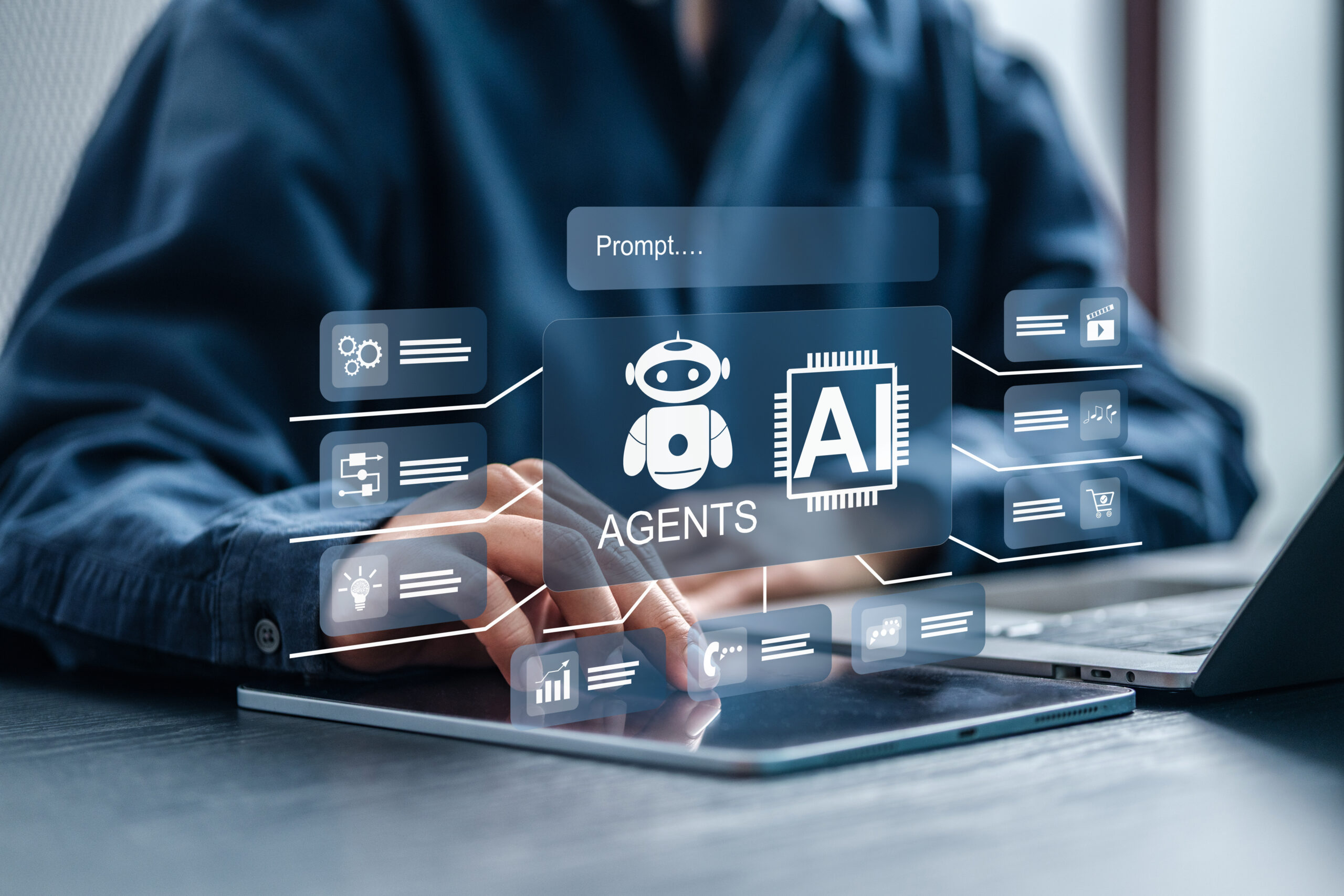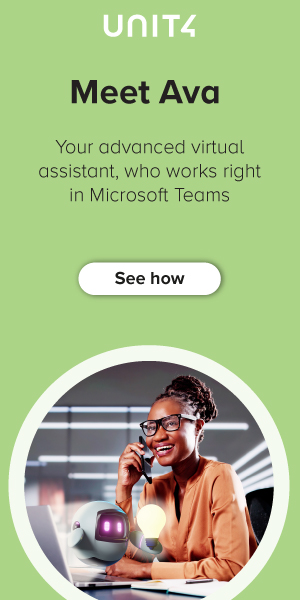Artificial intelligence (AI) is reshaping the enterprise software landscape. However, in a world full of AI hype, how can organizations find practical, real-world value from this useful but often misused tool? During a recent ERP Today webinar, Bryce Wolf, Strategic Growth Director, and Rafael Artacho, Product Director, at Unit4 peeled back the layers of marketing jargon to discuss a pragmatic, people-centric approach to AI integration in ERP systems.
A Vision for Intelligent Partnership
“We believe that ERP systems should do more than just record transactions,” explained Artacho. “They should act as intelligent partners, anticipating the needs and helping people make better decisions.” This vision is built on embedding AI and automation as core tools to make work faster, easier, and more meaningful.
The speakers noted that this evolution has been deliberate. Unit4’s journey in pragmatic AI began in 2015 with machine learning for tasks such as receipt recognition. It progressed with the introduction of the intelligent assistant Wanda in 2017, followed by the low-code Extension Kit and Smart Automations in 2021-2022. In 2023 and 2024, the company launched App Studio and Ava, an advanced virtual agent powered by generative AI. Wolf highlighted that, unlike its predecessors, Ava doesn’t just follow commands; it proactively monitors actions, informs users, and suggests the next best steps.
The Journey to Autonomy: Assist, Advise, Act
The core difference between an old-school chatbot and a modern AI agent is the shift from a rigid script to a goal-oriented mindset. Artacho explained that Unit4 frames this as a three-step journey:
- Assist: The initial stage involves simplifying access to information by bringing ERP data into collaboration tools, such as Microsoft Teams, where users already work.
- Advise: The current stage moves beyond data presentation. Here, AI interprets context to provide recommendations. It guides users to make better, faster decisions, such as suggesting the approval of a timesheet based on the project budget and planned hours.
- Act: The future is about autonomous execution. For well-defined, repetitive processes, the AI will act autonomously, freeing people to focus on strategic tasks.
Building the Foundation of Trust
“However, this progression toward autonomy hinges on trust as the ultimate goal is user adoption,” Wolf highlighted.
Further illustrating this point, Artacho outlined three pillars for building this confidence. The first is explainability, allowing users to understand how the AI reached a decision. The second is auditability, providing a clear trail of the system’s actions. The third and most important pillar is that the final decision always rests with an individual.
“We don’t want people to be replaced. We just want to augment them,” Artacho emphasized. “At the end, they will have the possibility to make the decision, and they will override the decision if they are not happy with the solution.” This human-in-the-loop supervision ensures that AI remains a powerful partner, not a replacement.
What This Means for ERP Insiders
Trust in AI is earned through transparency and control. The success of any AI initiative depends on whether people feel safe and empowered to use this tool. Unit4’s strategy directly addresses this by building trust through explainability, auditability, and human supervision. Together, these pillars foster the user’s confidence in AI by enabling transparency in the AI’s reasoning process, empowering users to track the AI’s actions and understand its behavior over time, and ensuring that a person always has the final say and the power to override any AI-driven suggestion or action.
Not all bots are created equal. During the webinar, Wolf explained the key difference between a simple chatbot and a modern AI agent. He said that traditional chatbots are command-oriented and require the user to provide specific inputs to navigate a predefined path. The process often fails if the user deviates from that path. However, an advanced virtual agent like Unit4’s Ava is powered by generative AI. Therefore, the user can simply give it a goal. The agent then uses its knowledge and capabilities to orchestrate the necessary steps to achieve that goal, even if the path isn’t linear. This makes it a far more powerful and flexible partner for completing complex work.
ERP is evolving into a tool that works for you. Unit4’s AI journey, from 2015 to the present, illustrates a profound shift in the role of ERP systems. Its ultimate vision is to provide an ERP that is proactive and invisible. For ERP Insiders, this means they no longer have to constantly log in to the ERP to search for information or initiate tasks, as this is now automated. Moreover, the system will continuously analyze data in real-time, identify important events or opportunities, and proactively notify the right person when their input is needed.






